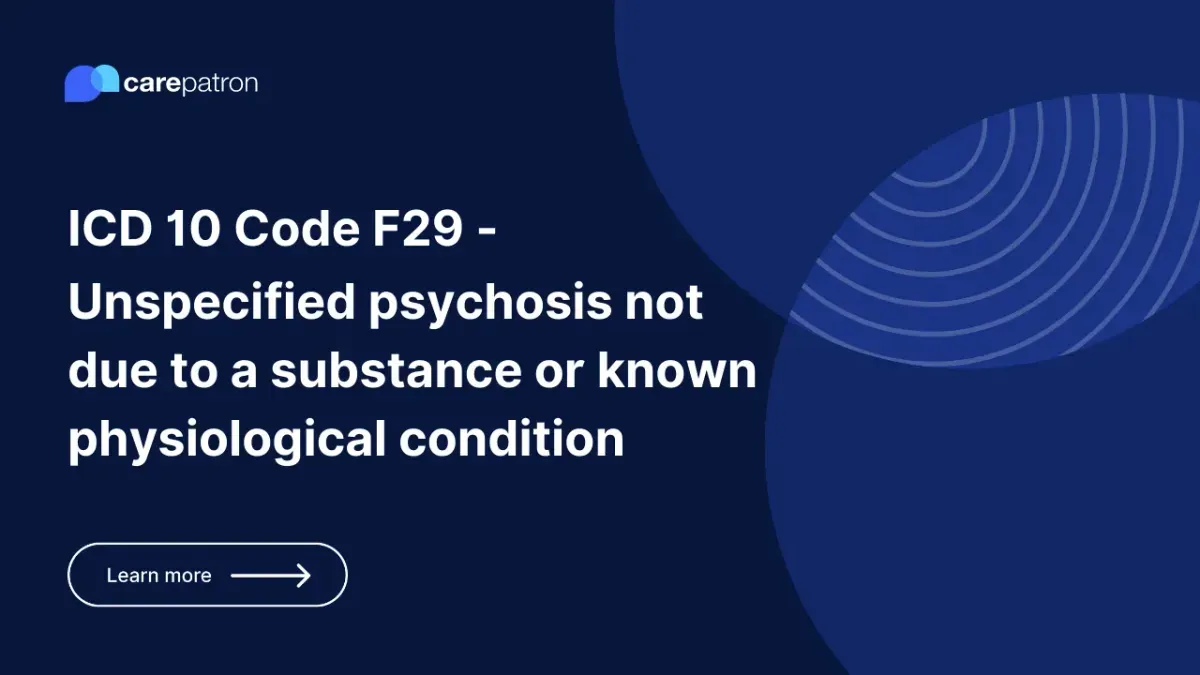
F29 – Unspecified psychosis not due to a substance or known physiological condition
F29 is a psychiatric diagnosis for psychosis without a known cause. It's not due to a substance or physical condition. Learn more about this condition.
Use Code
EHR and practice management software
Get started for free
*No credit card required
Free
$0/usd
Unlimited clients
Telehealth
1GB of storage
Client portal text
Automated billing and online payments
